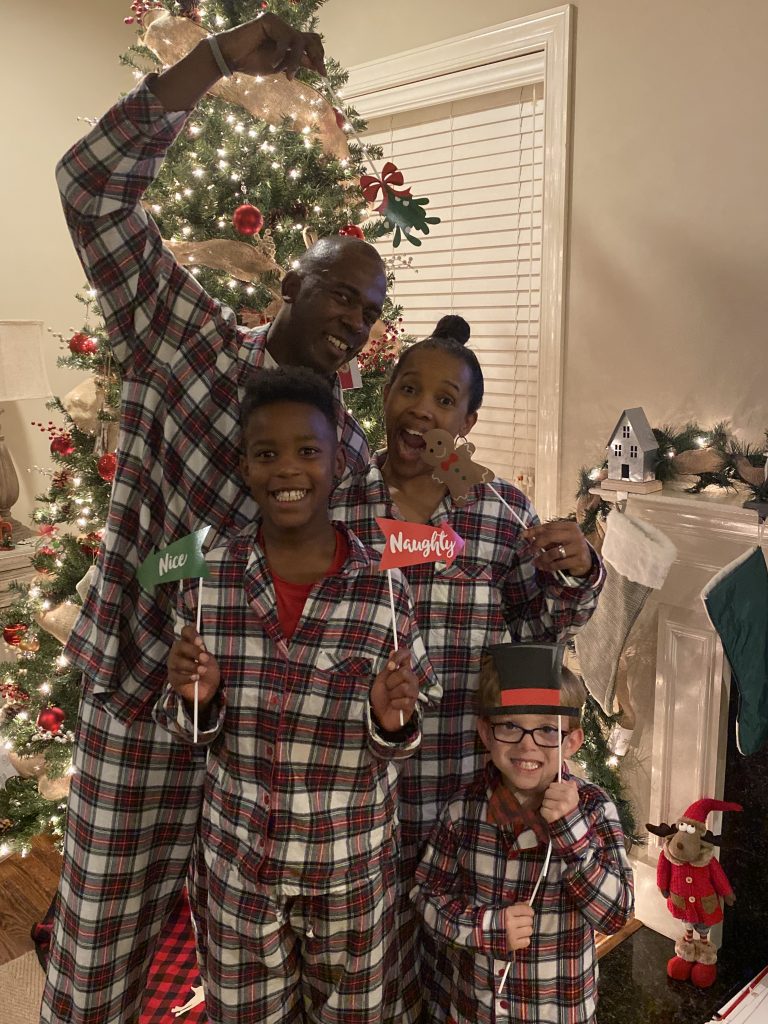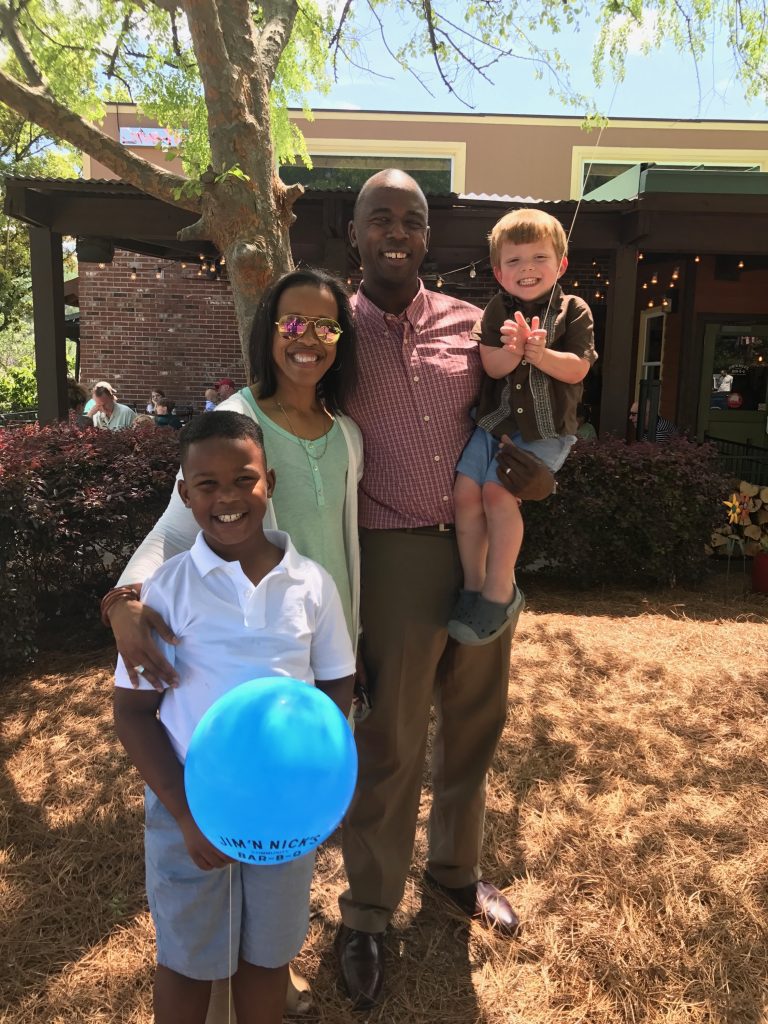 After the birth of our first son, we decided to became foster parents. Our experience as foster parents—having to return children we were attached to—lead us to considering growing our family via adoption. We were the only Black family seeking to adopt in the agency, so we received a lot of referrals from Black birth moms. We had two failed adoptions—mothers decided not to place their children after birth. Soon after the third, we received a referral from a lawyer regarding a White birth mom. Within two hours of meeting us, she wanted us to be the parents of the child she was carrying—a boy. At the time, she thought her baby was biracial. Six weeks later, that baby was born. He was not biracial. He was White. Her words to us then were, “Is it ok?” In that moment, all that I could think to say was “If it’s ok with you (a White woman in Alabama), how could I say no?” It still amazes me today, seven years later, that a White woman in Alabama asked a Black family to adopt the child she carried and gave birth to.
After the birth of our first son, we decided to became foster parents. Our experience as foster parents—having to return children we were attached to—lead us to considering growing our family via adoption. We were the only Black family seeking to adopt in the agency, so we received a lot of referrals from Black birth moms. We had two failed adoptions—mothers decided not to place their children after birth. Soon after the third, we received a referral from a lawyer regarding a White birth mom. Within two hours of meeting us, she wanted us to be the parents of the child she was carrying—a boy. At the time, she thought her baby was biracial. Six weeks later, that baby was born. He was not biracial. He was White. Her words to us then were, “Is it ok?” In that moment, all that I could think to say was “If it’s ok with you (a White woman in Alabama), how could I say no?” It still amazes me today, seven years later, that a White woman in Alabama asked a Black family to adopt the child she carried and gave birth to.
It’s the memory of that moment that comforts me when I am asked if I’m the nanny or the babysitter. That memory comes to mind when my tall, Black husband is carrying his blonde haired White son who loves him more than anyone in the world…and people are staring, some with mouths open. That moment won’t save him from what I’m sure will be teasing and taunting as he gets older. He’s a pretty tough boy, though. But it gets me out of the house on those days when I’m terrified someone will take him away because he’s White. This fear is unhealthy, but it’s real. He’s aware of how he’s different. He learned about Martin Luther King, Jr. in preschool, and because of MLK’s “brown” skin he likened him to his “daddy.” He knows about Civil Rights. He knows about George Floyd. He knows about Black Lives Matter. These are not easy conversations—but important ones. Our 11 year old knows all these things, as well. Those conversations are different but not any easier. He’s tall, Black and maybe eventually threatening to someone. One discussion we’ve had is about how they treat one another outside of our home. Inside, they argue and fight like brothers…because they are brothers. Outside of this house, they are still brothers, but the world doesn’t know. Any disagreement between the two of them can be misconstrued because of what they appear to be, a Black boy and a White boy arguing. Which of them receives the blame and the judgement? It’s probably an even harder conversation to have and one we’ll have to have a lot as they mature. The words “Be good to one another” and “Love your brother” are constant. But those aren’t words just for our children, those are words for the world. It seems so simple, right? Why is it so difficult?












